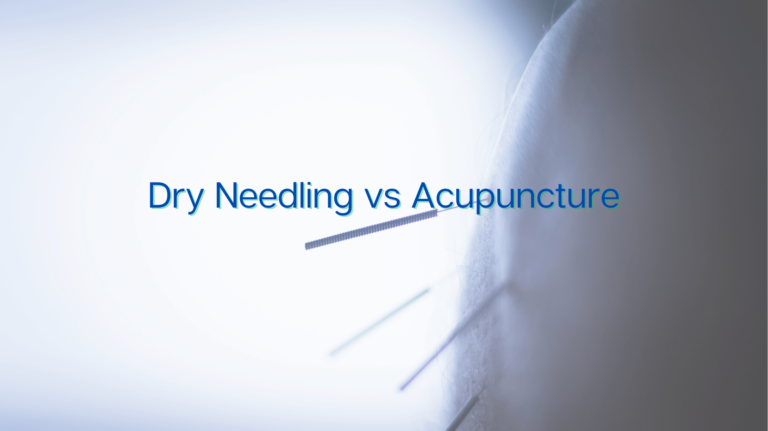[rt_reading_time label=”Reading Time:” postfix=”minutes” postfix_singular=”minute”]
If you’ve ever undergone dry needling treatment, you may have wondered – is this practice legal where I live? Or maybe you’re considering trying dry needling for pain relief but have concerns about its legality. With varied regulations across the United States, the answer is complicated. Keep reading to learn about the legal status of dry needling in different states and by different healthcare practitioners.
Dry needling involves inserting thin filiform needles into trigger points in muscles to relieve pain and improve function. This technique is used to treat myofascial pain, recover from injuries, manage headaches, and address many other conditions. While generally considered safe and effective, dry needling does carry risks like bleeding or nerve irritation when performed incorrectly.
For this reason, regulations exist around who can legally practice dry needling in each state. These laws differ based on the type of license and credentials the provider holds. I discovered this myself when researching dry-needling clinics in my area. Here’s what I found about the state-by-state legality of this useful therapeutic tool.
Dry Needling Legality for Physical Therapists
Physical therapists (PTs) make up the majority of dry-needling providers in the US. However, in some states, they must obtain additional certification beyond their PT license to perform this treatment legally.
For instance, in Oregon, the Physical Therapist Licensing Board maintains that dry needling falls within the PT scope of practice. So a licensed Oregon PT can perform dry needling with no added certification. On the other hand, the California Physical Therapy Board currently only allows dry needling by PTs who have completed required advanced training courses and assessments through accredited programs.
The American Physical Therapy Association (APTA) provides detailed state-by-state regulatory information for PTs interested in pursuing dry-needling certification. According to the APTA, dry needling is considered within the PT scope of practice in the majority of states, with some requiring further training. A few states like South Dakota prohibit the practice completely for physical therapists.
Before providing dry needling treatment, PTs have an ethical obligation to be knowledgeable about their state’s specific directives and only practice within their legal scope. Regulatory boards like the Federation of State Boards of Physical Therapy (FSBPT) can also provide updated dry-needling practice acts for every state.
Regulation of Dry Needling by Chiropractors
Chiropractors must also adhere to their state’s practice guidelines regarding dry needling. In states like Texas and New Hampshire, dry needling is included in the chiropractic scope of practice with no added licensure required beyond the DC credential.
However, other states limit or prohibit chiropractors from performing dry needling. For instance, the Maryland Board of Chiropractic & Massage Therapy Examiners has ruled dry needling exceeds the chiropractic scope, making it illegal for DCs to practice.
Organizations like the American Chiropractic Association (ACA) advise DCs to consult their State Board rules to determine if dry needling education and training is required in their jurisdiction before incorporating this technique in their practices. Violating these policies could jeopardize their license.
Is Dry Needling Legal for Acupuncturists?
For licensed acupuncturists, dry needling is considered within their scope of practice since it involves inserting filiform needles into trigger points and ashi points on the body. Most states allow dry needling by acupuncturists without any additional certification.
However, some states classify dry needling separately from acupuncture and have imposed specialized regulations around its practice. In Louisiana, dry needling is permitted by acupuncturists but considered an “advanced practice.” The state mandates proof of 16 hours of dry needling training before allowing licensed acupuncturists to perform it.
The American Association of Acupuncture and Oriental Medicine (AAAOM) is lobbying to establish dry needling as part of the acupuncture profession’s core competencies. They provide legal resources to help acupuncturists stay up-to-date on the dry needling rules and scope of practice exclusions that apply to them in each state.
A Quick Guide to Dry Needling Regulations By State
| State | Physical Therapists | Chiropractors | Acupuncturists |
|---|---|---|---|
| Alabama | Allowed with Certification | Not Allowed | Allowed |
| Alaska | Allowed with Certification | Allowed with Certification | Allowed |
| Arizona | Allowed | Allowed | Allowed |
| Arkansas | Allowed with Certification | Not Allowed | Allowed |
| California | Allowed with Certification | Not Allowed | Allowed |
| Colorado | Allowed | Allowed | Allowed |
| Connecticut | Allowed | Not Allowed | Allowed |
| Delaware | Allowed | Not Allowed | Allowed |
| Florida | Allowed | Allowed | Allowed |
| Georgia | Allowed | Allowed | Allowed |
| Hawaii | Allowed | Not Allowed | Allowed |
| Idaho | Allowed | Allowed | Allowed |
| Illinois | Allowed with Certification | Allowed with Certification | Allowed |
| Indiana | Allowed with Certification | Not Allowed | Allowed |
| Iowa | Allowed | Not Allowed | Allowed |
| Kansas | Allowed | Not Allowed | Allowed |
| Kentucky | Allowed with Certification | Allowed with Certification | Allowed |
| Louisiana | Allowed with Certification | Not Allowed | Allowed with Additional Training |
| Maine | Allowed | Not Allowed | Allowed |
| Maryland | Allowed with Certification | Not Allowed | Allowed |
| Massachusetts | Allowed | Not Allowed | Allowed |
| Michigan | Allowed | Not Allowed | Allowed |
| Minnesota | Allowed with Certification | Not Allowed | Allowed |
| Mississippi | Allowed | Not Addressed | Allowed |
| Missouri | Allowed | Not Addressed | Allowed |
| Montana | Allowed | Not Allowed | Allowed |
| Nebraska | Allowed | Not Allowed | Allowed |
| Nevada | Allowed with Certification | Allowed with Certification | Allowed |
| New Hampshire | Allowed | Allowed | Allowed |
| New Jersey | Allowed with Certification | Not Allowed | Allowed |
| New Mexico | Allowed | Not Allowed | Allowed |
| New York | Allowed with Certification | Not Allowed | Allowed |
| North Carolina | Allowed with Certification | Allowed with Certification | Allowed |
| North Dakota | Allowed | Not Allowed | Allowed |
| Ohio | Allowed | Not Allowed | Allowed |
| Oklahoma | Allowed | Not Allowed | Allowed |
| Oregon | Allowed | Not Allowed | Allowed |
| Pennsylvania | Allowed with Certification | Allowed with Certification | Allowed |
| Rhode Island | Allowed | Not Addressed | Allowed |
| South Carolina | Allowed with Certification | Not Allowed | Allowed |
| South Dakota | Not Allowed | Not Addressed | Allowed |
| Tennessee | Allowed with Certification | Allowed with Certification | Allowed |
| Texas | Allowed | Allowed | Allowed |
| Utah | Allowed | Not Allowed | Allowed |
| Vermont | Allowed with Certification | Not Allowed | Allowed |
| Virginia | Allowed with Certification | Not Allowed | Allowed |
| Washington | Allowed with Certification | Not Allowed | Allowed |
| West Virginia | Allowed | Not Addressed | Allowed |
| Wisconsin | Allowed | Not Allowed | Allowed |
| Wyoming | Allowed | Not Addressed | Allowed |
💡Also Read, What happens when dry needling hits a nerve?
Staying Compliant with Dry Needling Regulations
I hope this breakdown gives you a better understanding of the dry-needling legality landscape across different US states. The main takeaway – make sure your provider is licensed and authorized to perform dry needling in your jurisdiction.
Physical therapists can look to the APTA for their state’s dry-needling rules and certification options. Chiropractors should check with their State Board, while acupuncturists can consult the AAAOM.
By being aware of the regulations in your region, you can feel confident accessing dry needling legally from properly qualified providers. You may be motivated like me to advocate for increased practice rights if your state currently prohibits professionals from offering this beneficial treatment! With adequate training and oversight, dry needling can be safely implemented to help many patients overcome pain.






